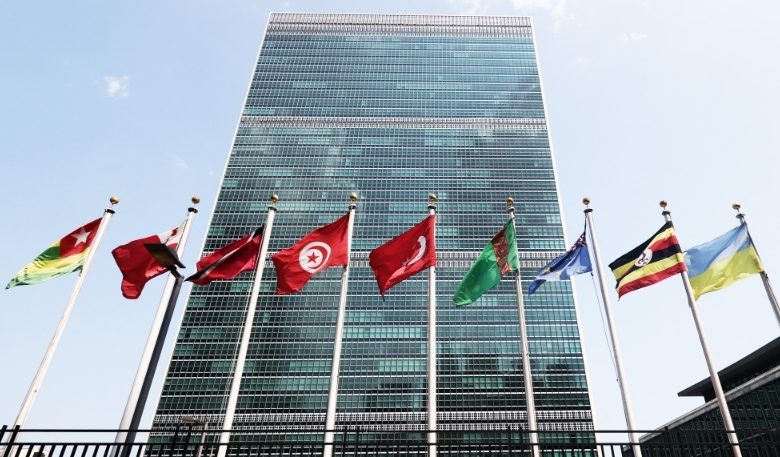Reports
Khartoum, Mogadishu: Crises in the Horn of Africa at the Heart of Tense UN Negotiations

Sudan Events – Agencies
As the United Nations General Assembly approaches in a few days, both European and American blocs are finding it difficult to speak with one voice amidst the increasing conflicts in Africa and dwindling funding from Western donor countries.
Requests are expected to reach the office of the African Union Commissioner for Political Affairs, Peace, and Security, Bankole Adeoye, by the end of the week. Somalia is seeking to replace the Ethiopian forces currently in the African Union Transition Mission in Somalia (ATMIS, formerly AMISOM) with Egyptian troops and wants to formalize this request before the UN General Assembly, which convenes in New York on September 24.
Mogadishu is heavily reliant on the UN’s agenda to push its diplomatic efforts by the end of the year. The ATMIS mandate will expire in December, to be replaced in January by the African Union Support and Stabilization Mission in Somalia (AUSSOM), with troop numbers reduced to around 12,000 soldiers. At the same time, Somali President Hassan Sheikh Mohamud will secure a seat on the United Nations Security Council.
The problem is that AUSSOM has not yet been funded, and its main backers are not in agreement. Part of the European bloc wants funding to come under Security Council Resolution 2719, which France strongly opposes, while the United States rejects the idea entirely.
Disappointing Outcomes
This resolution, unanimously adopted by the Security Council in December, was intended to pave the way for a new era of security cooperation between the African Union and the United Nations. It stipulates that requests for financial contributions from the UN to support peacekeeping operations in Africa be reviewed on a case-by-case basis. Additionally, it caps these contributions at 75% of the total, with the African Union and the international community covering the remaining 25%.
For some in the European bloc, using this new framework for Somalia would allow the EU, historically the main supporter of peacekeeping operations in Somalia, to bear a more equitable financial burden. But the United States sees AUSSOM as not providing sufficient guarantees for success. The U.S. State Department is also skeptical of obtaining Congressional support to release new funds.
Since 2007, when AMISOM was first deployed, Brussels has spent about €2.7 billion in Somalia, with disappointing results. In addition to rampant corruption (Somalia consistently ranks at the bottom of Transparency International’s corruption index), the Somali federal model has not been adopted, and above all, the al-Shabaab group remains active. Although Hassan Sheikh Mohamud declared upon taking office that he would prioritize confronting the Islamist militant group, his ambitions have been hampered by setbacks faced by Somali security forces since 2022.
Monitoring Mechanism
Washington prefers that the new UN funding framework be tested in Sudan, where a devastating civil war erupted in April 2023. At least, this is the idea regularly promoted by American diplomats. Since August, U.S. Special Envoy for Sudan, Tom Perriello, has been trying to mediate a ceasefire between the warring factions in Sudan and welcomes the idea of establishing a monitoring mechanism that could fall within the scope of Resolution 2719. However, the Sudanese Armed Forces and the Rapid Support Forces show no signs of de-escalating, and Perriello has yet to bring both parties to the negotiating table.
In its first report, published on September 6, the UN Human Rights Council’s International Independent Fact-Finding Mission on Sudan, established in October 2023, recommended “the deployment of an independent, neutral force with a mandate to protect civilians in Sudan.” But Sudanese Armed Forces leader Abdel Fattah al-Burhan does not want to hear about the deployment of such a force. It has not yet been included in the agendas of the African Union Peace and Security Council or the UN Security Council. The UN had an Integrated Transitional Assistance Mission in Sudan (UNITAMS) until December 2023, but after intense negotiations, its mandate was not renewed.
Nevertheless, the UN Security Council renewed the sanctions regime against Sudan on September 11, 2024.
Diplomatic Void
Al-Burhan is expected to travel to Manhattan at the end of September, where he is supposed to meet U.S. Secretary of State Antony Blinken. Washington still hopes to persuade Al-Burhan to engage in last-chance negotiations.
The United States will then enter a period of political turmoil, leaving a diplomatic void in East Africa. U.S. Special Envoy for the Horn of Africa, Mike Hammer, is set to leave his post at the end of November. Perriello, appointed last year, is not expected to remain after the November presidential elections. It will take four to six months for the U.S. Congress to approve new special envoy appointments.
This presents an opportunity for Brussels to take a central role. Having been largely sidelined by U.S. mediation efforts in the Horn of Africa since 2022, the European bloc is already preparing. A ministerial meeting on Sudan is scheduled on the sidelines of the UN General Assembly, initiated by Paris, Berlin, and Brussels. In October, the EU will also hold a security forum in Nairobi, after pledging €20 million to support Kenyan Defense Forces in their fight against al-Shabaab.



